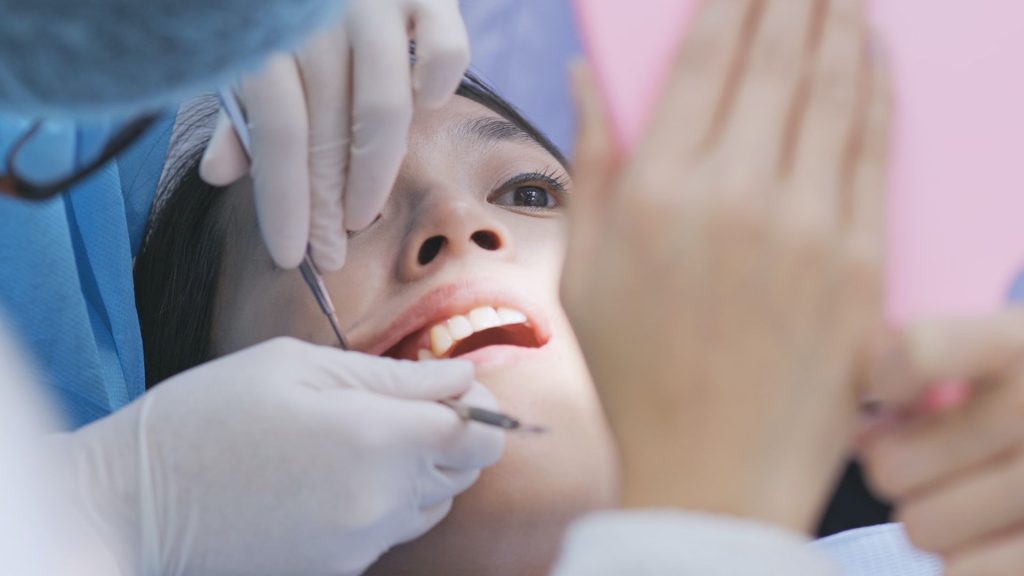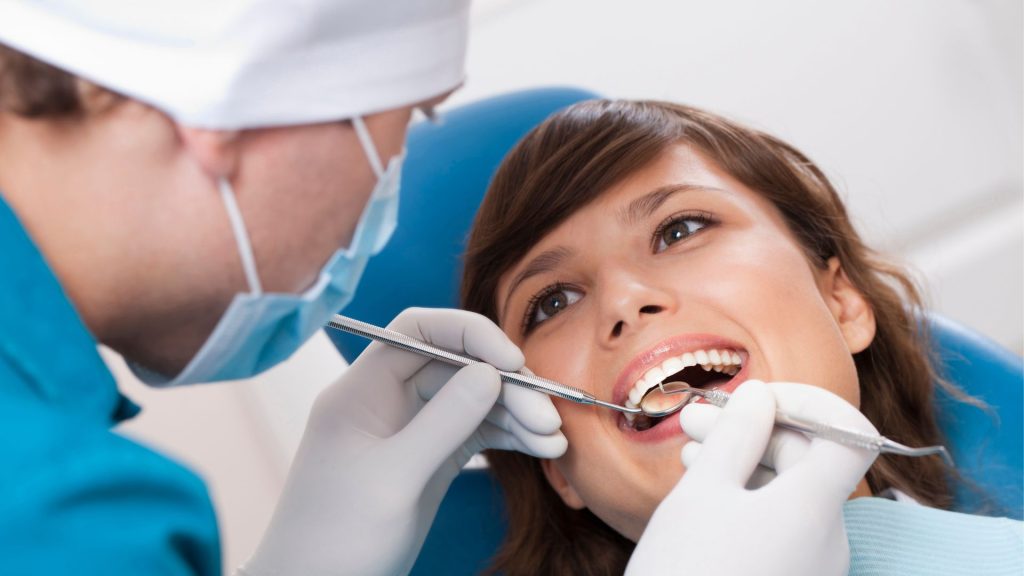Can you eat after a filling? Wait 2 hours before eating after filling to let the filling settle and firm. Too quickly eating might displace or wear down fillings, producing pain, inflammation beneath the filling, or tooth decay. Fillings are often used to repair cavities and other imperfections in teeth. So, how long can you eat after fillings? To answer your queries, let’s find out:
What to Expect After Getting a Filling?


No doubt at some point in our life, we’ve all had to fill a tooth or teeth at the dentist. However, your teeth may alter after filling, making you uncomfortable or frightened. Find out how to best prepare for your recovery by reading up on what to anticipate following fillings.
- Sensitivity: After fillings, your teeth may become more sensitive to heat and pressure. The filling material’s effect on the soft enamel layer causes this, however it will fade with time.
- Pain: You may have discomfort while chewing or eating. This may occur due to the anesthesia or filling. In most cases, the discomfort will go away on its own.
- Irritation: Deep fillings near nerves may cause temporary discomfort. In this instance, see your dentist for an examination and consultation.
- Color change: Over time and with food and beverage interaction, fillings may change color. This causes aesthetic issues but does not impede tooth function.
In addition, fillings can also help protect teeth from cavities and other problems, helping you to have a healthier smile.
Can You Eat After A Filling?


You can, however the filling needs at least 2 hours to firm before eating. In the event that it is consumed too rapidly, fillings may shift or wear down, leading to discomfort, gum inflammation, or even tooth decay. For the first 24 hours after filling, you should avoid hard, sticky, or chewy meals since the filling material is still soft and may be worn or displaced. If you wish to consume these dishes, chop them up and don’t chew the fillings. After 24 hours, you may eat normally, but wash your teeth often to maintain your fillings clean and healthy. In sum, if you have concerns regarding eating after fillings, visit your dentist.
What Foods to Eat After a Filling?
To safeguard your teeth after filling, dental hygiene and nutrition are crucial. An unhealthy diet may damage fillings and other dental issues. Thus, today we will discuss what foods should and should not be consumed after filling to assist you take care of your teeth and eat safely:
Hard Foods


After getting your fillings, you shouldn’t gnaw on anything too hard like gum, peanuts, hard snacks, dried meat, almonds, or biscuits. However, the following foods may be safely consumed after having fillings placed:
- Hard Fruits: Apples, pears, mangoes, and carrots can help clean teeth and benefit oral health.
- Vegetables: Tomatoes, cucumbers, carrots, cabbage, beets, beets, and kale are some of the tough vegetables you can eat after fillings.
- Toast: Sandwiches, burgers and garlic pieces of bread are pieces of bread that have a firmer texture and can be eaten after fillings.
- Other foods: After fillings, take yogurt, hard cheese, salty roasted peanuts, peanut butter, chestnuts, walnuts, chia seeds, and hard grains.
However, you must chew properly and avoid pushing on the filling to avoid damage and pain. Call your dentist if you have any discomfort around the filling.
Sticky And Sugary Foods
Stay away from sugary, acidic, and sticky foods after you’ve eaten a lot. However, you should be cautious to keep your mouth clean after eating, and there are certain sticky and sweet items that you may take after fillings. Here are a few sticky and sweet treats to have after getting fillings:
- Rice and instant noodles: After fillings, instant items are neither sticky nor sugary.
- Soups: They are good options for meals after fillings, as they are sugar-free and not too sticky.
- Milk and dairy products: Yogurt, cheese, and ice cream are ideal post-meal snacks since they’re neither sticky nor sugary.
However, sweets and sticky things like gum, hard snacks, dried meat, and pastries may harm the filling and create pain. If the filling region hurts, call your dentist for guidance and treatment.
Dark Foods
After filling, avoid dark-colored meals since they adhere to teeth and make cleaning harder. However, you may still consume a variety of dark-hued meals even after fillings. After fillings, consume these dark foods:
- Green vegetables: Spinach, broccoli, kale, and other green veggies include fiber, minerals, and no sugar. They make terrific post-filling dinners.
- Seeds: Nutrient-dense, sugar-free seeds include chia, flax, pumpkin, sunflower, and almonds. They may fill you up after eating.
- Red meat: Beef, pig, and lamb provide vital protein. To avoid tooth damage, pick lean, unsalted meat.
However, you should remember that, after filling your teeth, limit your intake of dark-colored foods to minimize the risk to your teeth.
Tips for Eating After a Filling
After obtaining fillings, you should be careful not to harm them or cause them to fall out. After obtaining dental fillings, here are some things to remember when you return to eating normally:
- Eat soft: After filling, eat soup, cereal, soft bread, ice cream, yogurt, ripe fruit, and fresh fruit. Avoid cold, lumpy, or hot food.
- Do not chew food: Gum, dried meat, menstruation cups, almonds, and other chewy foods should be avoided. Too much chewing might break fillings or damage teeth.
- Focus on nutrient-rich foods: To speed tooth recovery, consume plenty of nutrient-rich meals, including calcium and vitamin D.
- Avoid carbonated drinks: Caffeinated drinks, beer, wine, and soft drinks may all induce tooth sensitivity and damage fillings after they have been placed.
- Proper oral hygiene: Following a filling, good oral hygiene is crucial. Get in the habit of brushing and flossing twice a day. If you’ve just had a filling, wait 24 hours before using fluoride toothpaste.
If you have questions, contact your dentist for specialized advice on healing after fillings.
Conclusion


It’s crucial to take care of the filled tooth and maintain the filling’s integrity by eating healthily after the procedure. We got the lowdown on what to eat and what to avoid after getting fillings from this article.
The dentists at Spring Orchid Dental in Bassendean can examine your teeth and recommend the best dental filling procedure for your specific case. We provide the finest dental treatment with expert dentists and contemporary technology.
Especially after filling at our clinic, the doctor will advise you on correct dental care and food to maintain your teeth healthy. Come to the Spring Orchid Dental Clinic for first-rate dental treatment, including fillings that won’t go in the way of your mealtime.
FAQs
What If You Consume Sweets After Filling Your Teeth?
If you consume sweet foods after filling, don’t panic, but take some precautions to safeguard your fillings.
- First, rinse your mouth with water after eating to eliminate food particles and sugar. If you can’t rinse, use an alcohol-free mouthwash to eliminate food and sweets.
- In addition, you should also limit the consumption of foods and drinks with too much sugar, because sugar can be harmful to fillings.
- Choose sugar-free or antibiotic sugar if you desire sweets. To protect the fillings, chew gently and thoroughly.
- Finally, brush twice a day and floss to clean the filling. Contact your dentist for filling issues.
Can You Drink Water After Filling?
It’s OK to drink the water once it’s been filled. Even more so after getting fillings, staying hydrated is essential. Hot or cold water may cause pain and sensitivity in the teeth. If you want your teeth to be healthy and pain-free after getting fillings, you should wait at least 24 hours before drinking carbonated water or anything with caffeine in it.
Should Food Be Kept Away From Filled Teeth?
You should avoid eating anything excessively hard, sticky, or chewy for a while after getting a filling since it may make your tooth more sensitive. However, you may still eat normally, so long as you stick to soft foods that won’t hurt your filled teeth. Wait at least 24 hours after filling to eat anything that might potentially affect the filling.





